In photos: Kashmir's Bakarwal tribe faces existential crisis
- Published
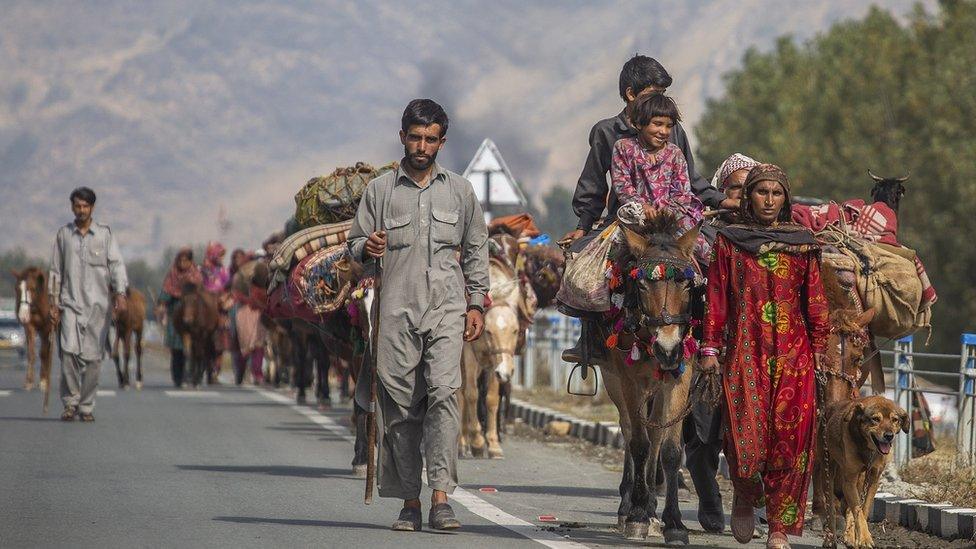
The Bakarwals are part of a 3.4-million-strong nomad community in Jammu and Kashmir
In Indian-administered Kashmir, a nomadic tribe is struggling to maintain its traditional lifestyle in the face of changing forest landscapes and weather conditions.
"People try to paint a rosy picture of our life but ours is, in fact, a saga of endurance and miseries," says Liaqat Khan, a shepherd from the Bakarwal tribe.
The Bakarwals are part of a 3.4 million-strong nomadic community of the Jammu and Kashmir region, whose primary occupation is rearing cattle.
At around 55km (34.17 miles) from Srinagar - the summer capital of Jammu and Kashmir - they camp in Dardwodur forests.
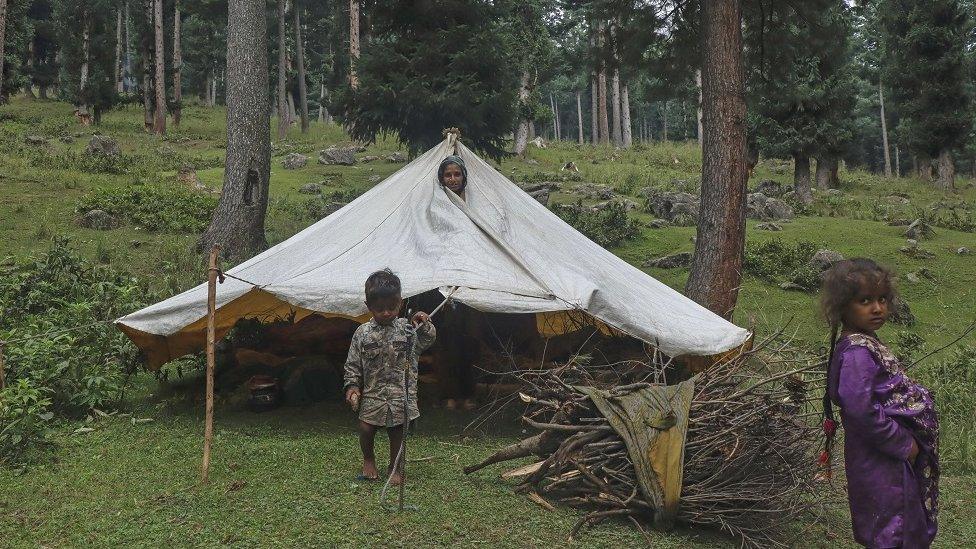
Nazira and her family have been camping in the alpine forests
Nazira, 30, is a skinny mother cradling her new-born here. Her tribe arrived three days ago, and camped on the alpine heights.
"It's time for us to start winter migration," Nazira says, as she sticks her head out from her makeshift tent.
For years, the Bakarwal tribe has been shuttling between Jammu and Kashmir. They spend six months in Kashmir during summers, arriving in the valley in April. By October, they return to the plains of Jammu for the winters.
"We belong to nowhere," says Zulfi, a young Bakarwal girl in Kashmir. "This is just our summer home."
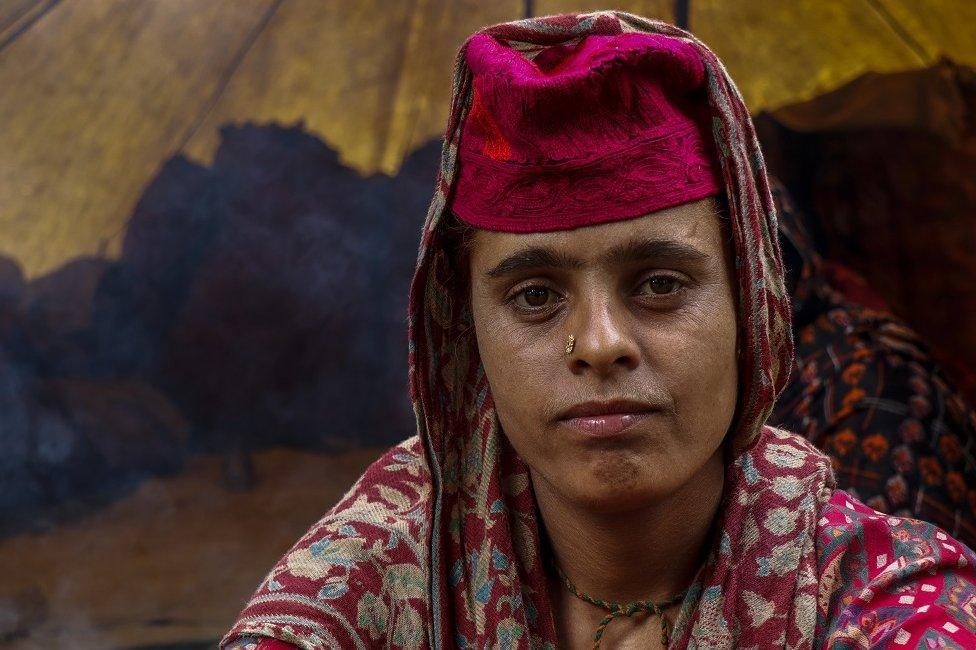
Tribe members say they have no permanent home. They rear cattle and live on forest lands
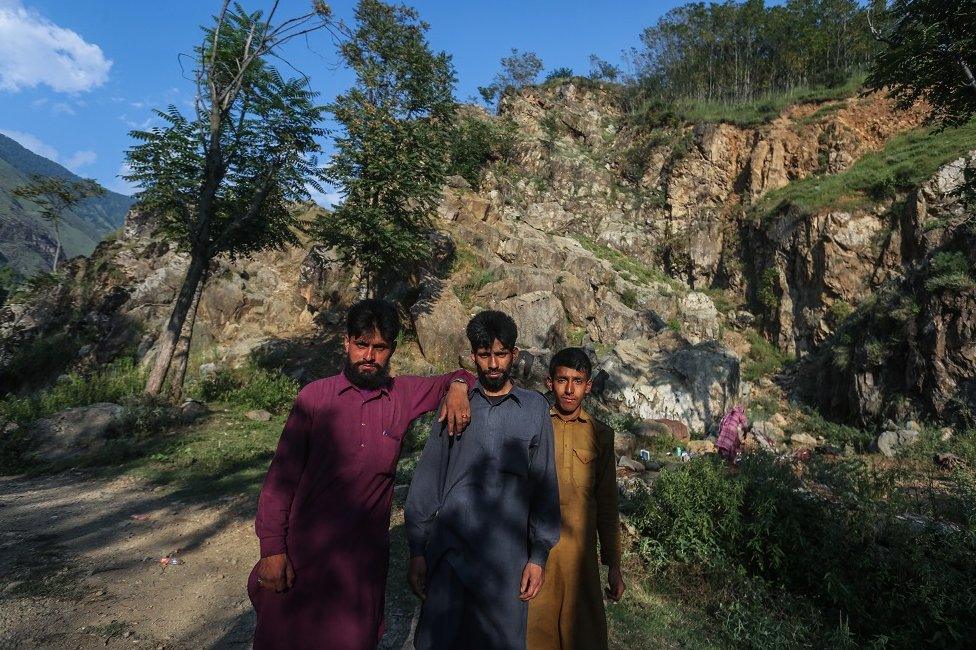
In the winters, the tribe heads to the warmer plains of Jammu for six months
The Bakarwals were officially declared as a "scheduled tribe" - tribal communities recognised by the India's Constitution as socially and economically disadvantaged - by the federal government in 2001.
Today, the tribe fears for the endurance of its traditional lifestyle due to increased wild animal attacks on their cattle - their main source of income.
Sale of their livestock has also dwindled.
"Earlier, a day of hard work would fetch a good amount of money for a sheep or a goat but not anymore," says Mohammed Zubair, 50, a disabled nomad camped on the outskirts of Srinagar.
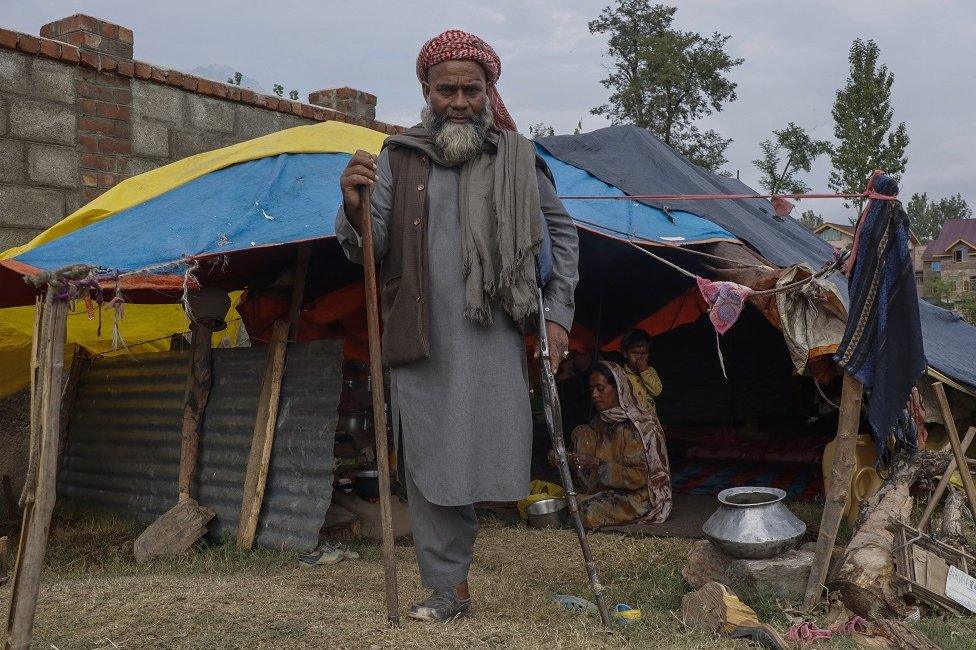
In recent years, the tribe has struggled to maintain their livelihood
The community also struggles with increased instances of inclement weather. "It's extremely difficult to travel to the high altitude pastures of the Himalayas," says Liaqat Khan, a shepherd.
In June, unseasonal snowfall and severe cold weather conditions in Chenab valley of Jammu and Kashmir left hundreds of tribal families stuck on road sides, with little food or fodder.
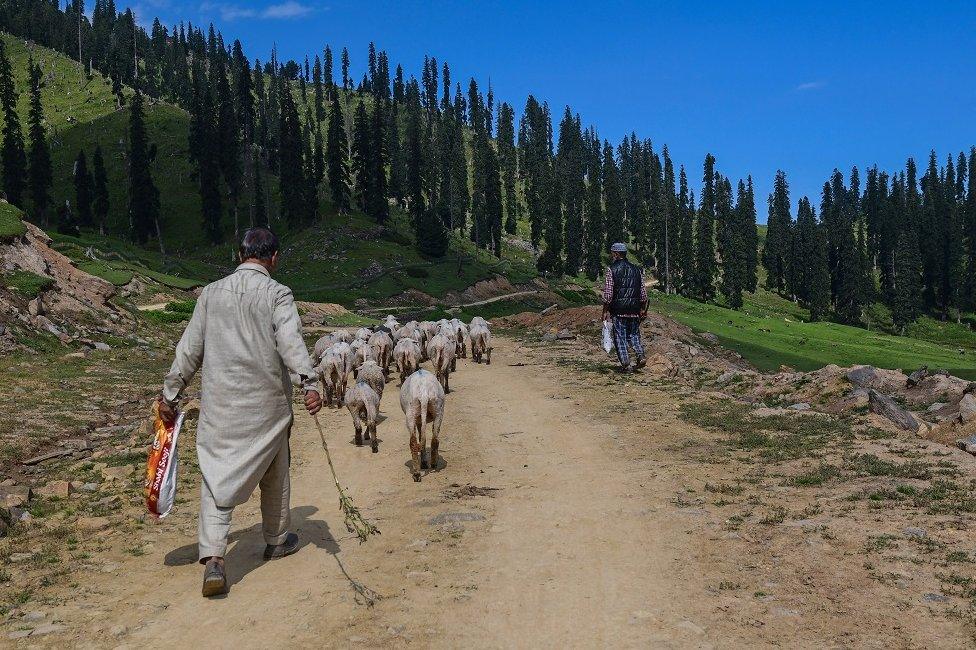
The community also struggles with increased instances of inclement weather
Another major concern for the tribe is their access to forest lands.
Last year, hundreds of families from the community were served eviction notices for "illegally" occupying forests which they have lived in for decades. Authorities also demolished several houses - the community lives in temporary tents mud huts in these areas.
A few months later, however, Lieutenant Governor Manoj Sinha said authorities would work to safeguard the rights of tribal communities in the region and provide them with rights certificates.
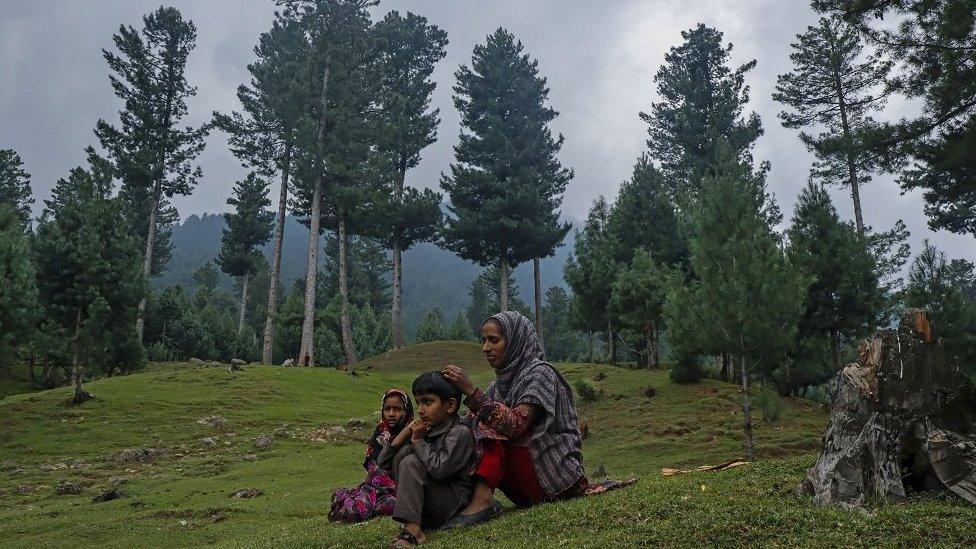
Access to forest lands is a major concern for the tribe
The harsh realities of their current existence are pushing the tribe's younger generation to focus on getting a good education and living an easier life.
The administration has also set up community schools to educate children of such tribes in forest areas.
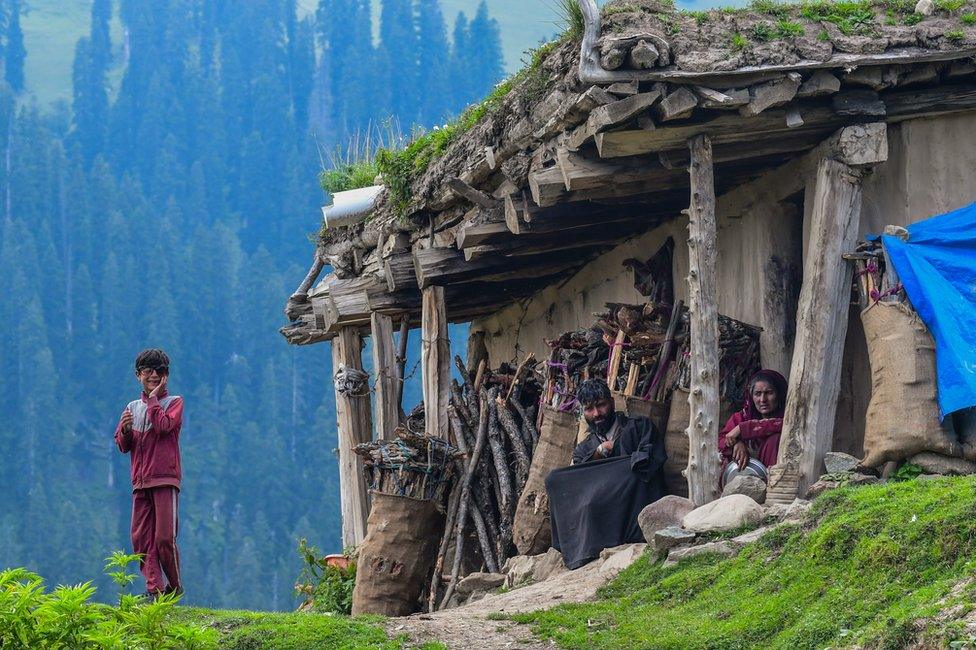
Many in the tribe are determined to keep their traditions alive
Despite various kinds of pressures on the community, many say they are determined to stick to their traditional lifestyle.
"We aren't giving up on anything," says Zulfi. "Although we are uncertain about our lives, we are firmly holding on to our traditions, no matter what."
All images by Abid Bhat. Text by Zaid Bin Shabir

Read more India stories from the BBC:
